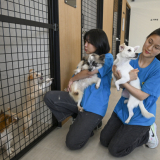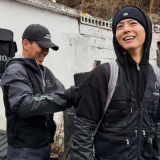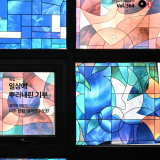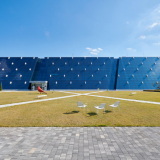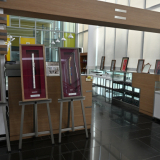한국 대학 입시 제도에 대한 단상-루이스 빈치게러(전 호남대 영문과 교수, 강사랑환경대학 참여활동가)
2024년 01월 19일(금) 00:00 가가
고등교육의 글로벌 지형에서 한국의 대학 입시 제도는 독특한 도전과 기대의 집합체로 보인다. 한국에서, 광주에서 20여년 살다보니 미국과 한국의 대학교수를 역임한 이로서 한국의 대학 입시 과정의 일부 측면에 대해 살펴보고, 그 복잡한 시스템을 헤쳐 나가야 하는 학생들에게 몇 가지 내가 느낀 점을 전하고자 한다.
첫째, 치열한 경쟁은 한국 대학 입시의 특징이다. 특히 대학수학능력시험 같은 표준화된 시험 점수에 대한 무게감은 당사자인 학생들에게 커다란 압력으로 다가올 것이다.
물론 학업 성적이 중요하다는 것은 의심할 여지가 없지만 교과외 활동, 그리고 리더 역할이나 기타 다양한 경험은 균형 잡힌 개인을 형성하는 데 도움이 된다. 즉, 학생들은 학업 성취와 개인적 발전 사이에서 균형을 이루도록 노력해야 할 것이다.
둘째, 융통성이 결여된 전공 선택이나 학과목 선택 과정은 다양한 시도를 통해 발전해야할 학생들에게 좌절감을 안겨줄 수 있다. 학생들이 다양한 분야를 탐색할 수 있는 길을 열어놓고 있는 비교적 유연한 미국의 커리큘럼과는 달리, 한국 학생들은 종종 학업 시작 초기에 전공을 선택해야 하는 압박에 직면한다.
학생들은 학제간 연구 기회를 활용하고 인턴십에 참여하는 등 특정 분야에 전념하기 전에 더 넓은 시각을 얻기 위해 다양한 시도를 할 수 있는 멘토링과 같은 제도적 지원이 필요하다.
거기다 한국 사회의 명문 대학에 대한 강조는 입시 과정에 있어서 추가적인 스트레스 요인이다. 명문 대학에 다니는 것이 확실히 더 큰 기회를 열어줄 수는 있지만, 성공은 졸업장에 적힌 학교 이름만으로 결정되는 것이 아니라는 것을 학생들이 기억해야 한다. 개인적 성장을 강조하고 자신의 열정을 추구하며 자신만의 기술을 개발하는 것도 장기적인 성공을 위해 똑같이 중요하다.
또한 한국의 학부모와 교육자를 포함한 기성 세대는 교육 시스템을 혁신하고 청소년을 위한 교육을 진정으로 향상시켜야할 막중한 책임이 있다. 그러한 지표를 지향하기 위해서는 먼저 시험 중심의 교육 시스템에서 벗어나 비판적이고 창의적인 사고와 문제해결 능력을 강조하는 교수법을 수용하는 것이 중요하다. 학문적 주제의 폭을 넓히고 학생들이 자신의 관심사를 탐구할 수 있는 더 많은 기회를 제공해야 한다.
또한 학생들의 강점을 발견하고 존중하는 교육 환경을 조성하는 것이 필수적이다. 학생 개개인의 다양한 강점과 재능에 따른 맞춤형 교육이 강조되어야 한다. 이를 위해서는 학생들이 자신을 이해하고 자신의 능력을 극대화할 수 있도록 돕는 것이 중요하다.
더 나아가 학부모와 교육자는 학업 성취와 더불어 이들의 취미, 관심사, 인격적 발달에도 관심을 기울여야 할 것이다. 즉, 학생들이 학업뿐 아니라 더 풍요로운 삶을 구축하는 데 필요한 다양한 경험을 쌓도록 아낌없는 지원이 제공되어야 할 것이다.
마지막으로, 교육 시스템의 변화를 이끌어내기 위해서는 모든 이해당사자 간의 효과적인 의사 소통과 협력이 필요하다. 학생, 학부모, 교육자, 정부 및 기타 관련자들이 함께 협력하여 교육 시스템을 지속적으로 발전시키고 학생들이 창의적이고 윤리적인 시민으로 성장할 수 있는 기회를 제공해야 할 것이다. 이같은 노력은 미래 세대를 위한 교육의 지속적인 개선을 위해 필수적이다.
결론적으로, 한국의 대학 입시 제도는 그 제도만의 독특한 도전 과제를 안고 있지만 개인적, 학문적 성장을 위한 귀중한 기회 또한 제공한다. 학생들은 학문적 성취뿐 아니라 개인적 발전과 다양한 경험을 중시하는 통합적 사고와 접근 방식으로 입시 과정을 헤쳐나가야 할 것이다. 그런 자세로 입시 과정을 극복했을 때 학생들은 비로소 특정 대학에 입학이라는 당장의 목표 달성을 넘어 미래 성공을 위한 토대를 마련할 수 있을 것이다.
※이 글은 인터넷에서 영문으로도 만날 수 있습니다.
Navigating the Challenges of South Korea’s College Admissions System
Prof. Louis Vinciguerra
In the global landscape of higher education, South Korea’s college admissions system stands out for its unique set of challenges and expectations. As a university professor in the United States, it is worthwhile to shed light on some aspects of the Korean admissions process and offer advice for students aiming to navigate through its intricacies.
Firstly, the intense competition is a defining characteristic of South Korea’s college admissions. The emphasis on standardized test scores, particularly the College Scholastic Ability Test (CSAT), can be overwhelming for students. While academic excellence is undoubtedly important, it is crucial to recognize that holistic factors such as extracurricular activities, leadership roles, and personal experiences play a significant role in shaping a well-rounded candidate. Students should strive for a balance between academic achievements and personal development.
Secondly, the rigid categorization of majors and the limited flexibility in choosing courses can be a source of frustration for many students. Unlike the more flexible curriculum in the United States, where students often have the freedom to explore various disciplines, Korean students often face pressure to choose a major early in their academic journey. My advice is for students to leverage opportunities for interdisciplinary studies, participate in internships, and seek mentorship to gain a broader perspective before committing to a specific field.
Moreover, the societal emphasis on prestigious universities in South Korea adds additional stress to the admissions process. While attending a prestigious institution can certainly open doors, it is important for students to remember that success is not solely determined by the school’s name on their diploma. Emphasizing personal growth, pursuing one’s passions, and developing unique skills are equally crucial for long-term success.
In addition, there is a significant responsibility for the older generation in Korea, including parents and educators, to innovate the education system and genuinely enhance education for the youth. Firstly, it is essential to move away from an exam-centric educational system and embrace teaching methods that emphasize critical and creative thinking and problem-solving skills. Expanding the breadth of academic subjects and providing more opportunities for students to explore their interests are crucial.
Moreover, creating an educational environment that discovers and respects students’ strengths is imperative. Customized education that highlights the various strengths and talents of students should be emphasized. Helping students understand themselves and enabling them to maximize their abilities is crucial.
Furthermore, parents and educators should not only prioritize academic achievements but also pay attention to students’ hobbies, interests, and character development. Support should be provided to students not only in academic settings but also in gaining diverse experiences that contribute to building a richer life. Lastly, to drive changes in the education system, effective communication and collaboration among all stakeholders are necessary. Students, parents, educators, the government, and other relevant parties need to work together to continually evolve the education system and provide opportunities for students go grow into creative and ethical citizens. This collaborative effort is essential for the ongoing improvement of education for future generations.
In conclusion, South Korea’s college admissions system poses unique challenges but also presents opportunities for personal and academic growth. Students should approach the process with a holistic mindset, valuing not only academic achievements but also personal development and diverse experiences. By doing so, they can navigate the admissions journey with resilience and build a foundation for a successful future beyond the gates of any particular institution.
물론 학업 성적이 중요하다는 것은 의심할 여지가 없지만 교과외 활동, 그리고 리더 역할이나 기타 다양한 경험은 균형 잡힌 개인을 형성하는 데 도움이 된다. 즉, 학생들은 학업 성취와 개인적 발전 사이에서 균형을 이루도록 노력해야 할 것이다.
거기다 한국 사회의 명문 대학에 대한 강조는 입시 과정에 있어서 추가적인 스트레스 요인이다. 명문 대학에 다니는 것이 확실히 더 큰 기회를 열어줄 수는 있지만, 성공은 졸업장에 적힌 학교 이름만으로 결정되는 것이 아니라는 것을 학생들이 기억해야 한다. 개인적 성장을 강조하고 자신의 열정을 추구하며 자신만의 기술을 개발하는 것도 장기적인 성공을 위해 똑같이 중요하다.
또한 한국의 학부모와 교육자를 포함한 기성 세대는 교육 시스템을 혁신하고 청소년을 위한 교육을 진정으로 향상시켜야할 막중한 책임이 있다. 그러한 지표를 지향하기 위해서는 먼저 시험 중심의 교육 시스템에서 벗어나 비판적이고 창의적인 사고와 문제해결 능력을 강조하는 교수법을 수용하는 것이 중요하다. 학문적 주제의 폭을 넓히고 학생들이 자신의 관심사를 탐구할 수 있는 더 많은 기회를 제공해야 한다.
또한 학생들의 강점을 발견하고 존중하는 교육 환경을 조성하는 것이 필수적이다. 학생 개개인의 다양한 강점과 재능에 따른 맞춤형 교육이 강조되어야 한다. 이를 위해서는 학생들이 자신을 이해하고 자신의 능력을 극대화할 수 있도록 돕는 것이 중요하다.
더 나아가 학부모와 교육자는 학업 성취와 더불어 이들의 취미, 관심사, 인격적 발달에도 관심을 기울여야 할 것이다. 즉, 학생들이 학업뿐 아니라 더 풍요로운 삶을 구축하는 데 필요한 다양한 경험을 쌓도록 아낌없는 지원이 제공되어야 할 것이다.
마지막으로, 교육 시스템의 변화를 이끌어내기 위해서는 모든 이해당사자 간의 효과적인 의사 소통과 협력이 필요하다. 학생, 학부모, 교육자, 정부 및 기타 관련자들이 함께 협력하여 교육 시스템을 지속적으로 발전시키고 학생들이 창의적이고 윤리적인 시민으로 성장할 수 있는 기회를 제공해야 할 것이다. 이같은 노력은 미래 세대를 위한 교육의 지속적인 개선을 위해 필수적이다.
결론적으로, 한국의 대학 입시 제도는 그 제도만의 독특한 도전 과제를 안고 있지만 개인적, 학문적 성장을 위한 귀중한 기회 또한 제공한다. 학생들은 학문적 성취뿐 아니라 개인적 발전과 다양한 경험을 중시하는 통합적 사고와 접근 방식으로 입시 과정을 헤쳐나가야 할 것이다. 그런 자세로 입시 과정을 극복했을 때 학생들은 비로소 특정 대학에 입학이라는 당장의 목표 달성을 넘어 미래 성공을 위한 토대를 마련할 수 있을 것이다.
※이 글은 인터넷에서 영문으로도 만날 수 있습니다.
Navigating the Challenges of South Korea’s College Admissions System
Prof. Louis Vinciguerra
In the global landscape of higher education, South Korea’s college admissions system stands out for its unique set of challenges and expectations. As a university professor in the United States, it is worthwhile to shed light on some aspects of the Korean admissions process and offer advice for students aiming to navigate through its intricacies.
Firstly, the intense competition is a defining characteristic of South Korea’s college admissions. The emphasis on standardized test scores, particularly the College Scholastic Ability Test (CSAT), can be overwhelming for students. While academic excellence is undoubtedly important, it is crucial to recognize that holistic factors such as extracurricular activities, leadership roles, and personal experiences play a significant role in shaping a well-rounded candidate. Students should strive for a balance between academic achievements and personal development.
Secondly, the rigid categorization of majors and the limited flexibility in choosing courses can be a source of frustration for many students. Unlike the more flexible curriculum in the United States, where students often have the freedom to explore various disciplines, Korean students often face pressure to choose a major early in their academic journey. My advice is for students to leverage opportunities for interdisciplinary studies, participate in internships, and seek mentorship to gain a broader perspective before committing to a specific field.
Moreover, the societal emphasis on prestigious universities in South Korea adds additional stress to the admissions process. While attending a prestigious institution can certainly open doors, it is important for students to remember that success is not solely determined by the school’s name on their diploma. Emphasizing personal growth, pursuing one’s passions, and developing unique skills are equally crucial for long-term success.
In addition, there is a significant responsibility for the older generation in Korea, including parents and educators, to innovate the education system and genuinely enhance education for the youth. Firstly, it is essential to move away from an exam-centric educational system and embrace teaching methods that emphasize critical and creative thinking and problem-solving skills. Expanding the breadth of academic subjects and providing more opportunities for students to explore their interests are crucial.
Moreover, creating an educational environment that discovers and respects students’ strengths is imperative. Customized education that highlights the various strengths and talents of students should be emphasized. Helping students understand themselves and enabling them to maximize their abilities is crucial.
Furthermore, parents and educators should not only prioritize academic achievements but also pay attention to students’ hobbies, interests, and character development. Support should be provided to students not only in academic settings but also in gaining diverse experiences that contribute to building a richer life. Lastly, to drive changes in the education system, effective communication and collaboration among all stakeholders are necessary. Students, parents, educators, the government, and other relevant parties need to work together to continually evolve the education system and provide opportunities for students go grow into creative and ethical citizens. This collaborative effort is essential for the ongoing improvement of education for future generations.
In conclusion, South Korea’s college admissions system poses unique challenges but also presents opportunities for personal and academic growth. Students should approach the process with a holistic mindset, valuing not only academic achievements but also personal development and diverse experiences. By doing so, they can navigate the admissions journey with resilience and build a foundation for a successful future beyond the gates of any particular institution.




